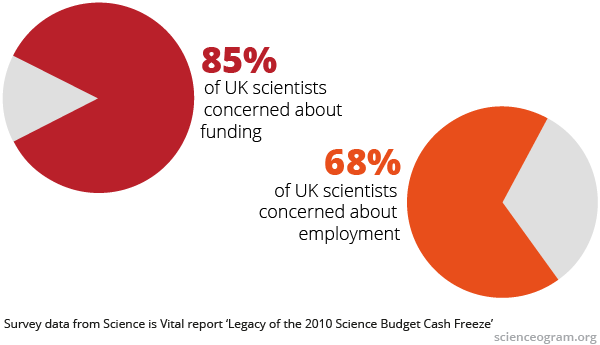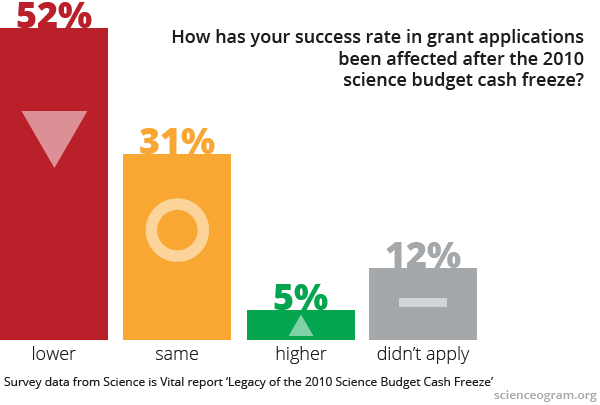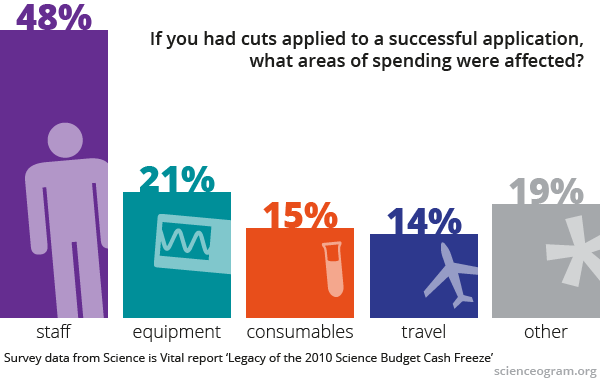New report: Legacy of the 2010 cash freeze
In 2010, the government froze the science budget in cash terms. This has resulted in a real-terms cut to science, as the effects of inflation erode the settlement; but what effect has this had on the ground? This week, Science is Vital released its latest report, including results of a survey of scientists which attempts to capture just that. And the results are pretty shocking: Science is Vital Chair Dr Jennifer Rohn said ‘We were quite frankly surprised by just how much scientists are struggling to cope in the current climate.’

The report makes for sobering reading. Responses were garnered from nearly 900 working and former scientists, and they indicate that researchers take a gloomy view of the future of UK science. By far the most common concern is funding, followed closely by employment: 85% of those questioned were worried about funding, with 68% worrying about their jobs (a figure which rises to 90% if you exclude principal investigators, many of whom have permanent positions).

These concerns are founded in personal experience. Most public funding of science is supported by grants, and over half of the respondents reported a lower success rate in grant applications since the cash freeze; this is particularly striking because the respondents will have accrued more publications and experience since 2010, which should have made winning grants easier. To quote one respondent, ‘Once the success rate for lengthy grant applications drops below a certain point, applying becomes a false economy.’
Where grants were awarded, only around half were awarded in full. The survey showed that the axe most commonly falls on staff and equipment; respondents also reported increased difficulties recruiting staff and PhD students since 2010.

Many scientists are tempted to leave either science or the UK behind as a result of this uncertain climate. One Chinese respondent said ‘My own country is offering more generous funding and better research environment. I am now considering leaving [the] UK, and many other Chinese researchers are thinking the same.’ Three quarters of the 35 scientists now working abroad who took part in the survey cited the funding climate as a driving factor for leaving the UK.
The full report is well worth a read, offering a summary of the UK science funding landscape since 2010, along with more data and quotes from the full survey.
It is critical that the government realises that a cash freeze is not sufficient to maintain the UK’s science base or keep up with science investment abroad, and certainly isn’t enough to bring science funding to a level commensurate with the size of the problems that science is trying to solve. As Rohn puts it, ‘Maintaining the cash freeze will not constitute “protection”, but will only perpetuate the decline.’
- Executive summary
- Press release (PDF)
- Take part in the survey (data collection is ongoing)
2 Comments
Atterrir sur une comète ? Combien ça a coûté ce truc ? | L'actualité de la High Tech
[…] Source […]
Atterrir sur une comète ? Combien ça a coûté ce truc ? « Mes idées HIGH TECH
[…] Source […]